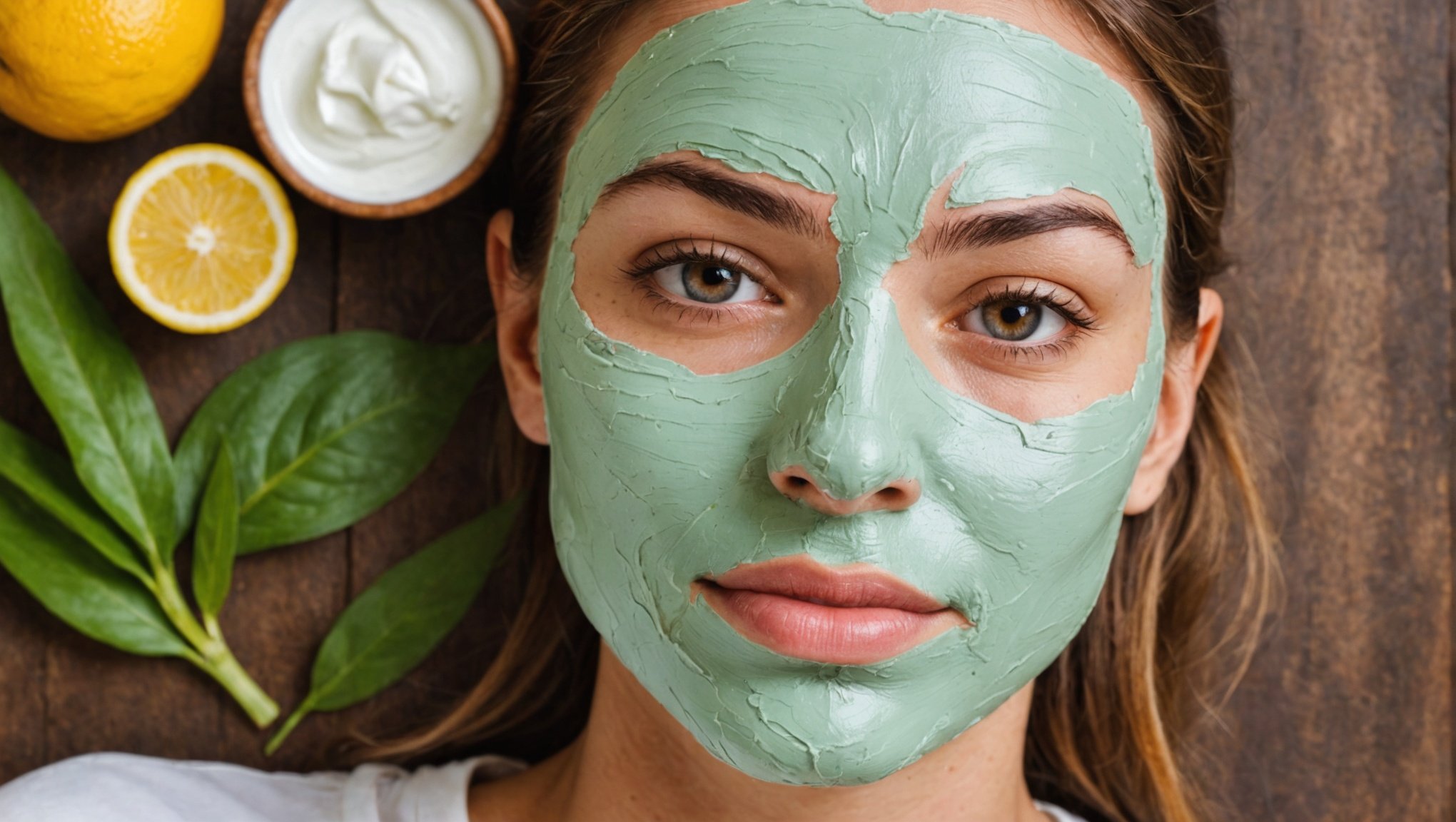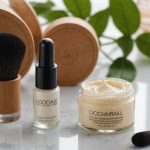Tired of dull skin that lacks radiance? An easy DIY organic face mask can transform your complexion without breaking the bank. Using simple, natural ingredients found in your kitchen, you can rejuvenate your skin and restore its glow. Forget complicated procedures and harsh chemicals; this mask nourishes and revitalizes, making your skincare routine a joy. Discover how to create your own refreshing blend and embrace a brighter, healthier complexion today!
Introduction to Dull Skin and Its Causes
Dull skin is a common concern affecting many individuals, often resulting in a lacklustre complexion. Understanding the dull skin causes is essential for maintaining optimal skin health. Several factors contribute to this condition, including environmental stressors, poor diet, and inadequate skin care routines. Environmental elements like pollution and UV exposure can damage the skin’s surface, leading to a dull appearance. Additionally, a diet lacking in essential nutrients can deprive the skin of the vitamins and minerals it needs to glow.
Also read : Shield Your Skin: Effective Strategies to Combat Hard Water Effects in the UK
Addressing dull skin is crucial not only for aesthetic reasons but also for enhancing overall skin health. A vibrant complexion often indicates well-maintained skin, reflecting one’s overall well-being. Focusing on proper skin care can significantly improve appearance and confidence.
Organic skincare solutions offer a promising approach to combating dull skin. These products often contain natural ingredients that nourish and rejuvenate the skin without the harsh chemicals found in some conventional products. By incorporating organic skincare into daily routines, individuals can effectively address dull skin causes while promoting healthier, more radiant skin.
Also to read : Discover Herbal Teas to Enhance Your Skin and Hair: Beauty Benefits Unveiled
Benefits of Using Organic Ingredients
Embracing organic skincare can offer numerous advantages for those seeking to revitalise dull skin. Natural ingredients, often derived from plants, provide essential nutrients that promote skin health. They are typically rich in antioxidants, vitamins, and minerals, which help to rejuvenate and protect the skin from environmental damage.
In contrast, synthetic skincare products may contain harsh chemicals that can strip the skin of its natural oils, leading to irritation or dryness. Organic options, however, are generally gentler and more compatible with the skin’s natural processes. This compatibility can result in fewer allergic reactions and improved overall skin health.
Moreover, organic skincare products are often more environmentally friendly. They are typically produced using sustainable practices, reducing the negative impact on the planet. By choosing products with natural ingredients, consumers not only support their own skin health but also contribute to a healthier environment.
Incorporating organic skincare into daily routines can lead to a noticeable improvement in skin appearance and texture. By prioritising natural ingredients, individuals can enjoy the skincare benefits of a healthier, more radiant complexion without compromising their skin or the environment.
Key Ingredients for the Face Mask
Creating an effective face mask involves selecting the right skincare ingredients. These revitalizing ingredients can transform dull skin, offering nourishment and a healthy glow.
Overview of Essential Ingredients
- Aloe Vera: Known for its soothing properties, aloe vera hydrates and rejuvenates the skin, making it an ideal component in any face mask.
- Honey: This natural humectant draws moisture into the skin, helping to maintain hydration and improve complexion.
- Turmeric: With its anti-inflammatory and antioxidant properties, turmeric helps brighten the skin and reduce signs of ageing.
- Yogurt: Rich in lactic acid, yogurt gently exfoliates, removing dead skin cells and revealing a fresher layer beneath.
Specific Benefits for Dull Skin
Each ingredient offers unique benefits. Aloe vera provides intense hydration, crucial for combating dryness, while honey locks in moisture. Turmeric’s antioxidants fight free radicals, reducing dullness, and yogurt’s exfoliating properties enhance skin texture.
Nutritional Value for Skin Health
These face mask ingredients are not only effective but also packed with nutrients. Vitamins, minerals, and antioxidants found in these components support overall skin health, making them invaluable for a radiant complexion. By incorporating these into your skincare routine, you can achieve healthier, more vibrant skin.
DIY Organic Face Mask Recipe
Creating a DIY face mask at home can be both fun and effective for rejuvenating dull skin. This easy face mask recipe utilises organic ingredients that are gentle and beneficial for all skin types.
Ingredients
- 2 tablespoons of aloe vera gel
- 1 tablespoon of raw honey
- 1 teaspoon of turmeric powder
- 2 tablespoons of plain yogurt
Instructions
- Combine Ingredients: In a small bowl, mix the aloe vera gel, honey, turmeric, and yogurt until you achieve a smooth consistency.
- Apply: Gently apply the mixture to your face, avoiding the eye area.
- Relax: Leave the mask on for 15-20 minutes to allow the ingredients to penetrate the skin.
- Rinse: Wash off with lukewarm water and pat your face dry with a clean towel.
Customization Tips
- Oily Skin: Add a few drops of lemon juice to help control excess oil.
- Dry Skin: Incorporate a teaspoon of olive oil for added hydration.
- Sensitive Skin: Reduce turmeric to half a teaspoon to prevent irritation.
This organic face mask can be tailored to suit individual skin needs, ensuring a personalised skincare experience.
Application Tips for Maximum Effect
Applying a face mask correctly can significantly enhance your skincare routine. To maximise the benefits, start by cleansing your face thoroughly to remove any impurities. This ensures the skin mask can penetrate deeply, delivering nutrients effectively.
Best Practices for Applying the Face Mask
- Even Application: Use clean fingers or a brush to spread the mask evenly across your face, avoiding the eye area. This ensures all areas receive equal treatment.
- Relaxation: While the mask is on, engage in relaxation techniques such as deep breathing or listening to calming music. This not only enhances the experience but also reduces stress, benefiting your skin.
Recommended Frequency of Use
For optimal results, incorporate the face mask into your routine 1-2 times a week. Overuse can lead to irritation, especially for sensitive skin types.
Enhancing the Experience
To elevate your skincare routine, consider using a warm towel to open pores before application. This allows the skin mask to work more effectively. Post-mask, applying a moisturiser can lock in the benefits, leaving your skin feeling refreshed and hydrated.
Expected Results and Skin Care Follow-Up
Achieving the desired skin results from using a face mask requires patience and consistency. Typically, visible improvements in skin appearance can be noticed within two to four weeks of regular use. This timeline allows the skin to adjust and benefit from the nutrients provided by the mask.
Maintaining these results involves a diligent skincare follow-up routine. After removing the mask, it’s crucial to apply a moisturiser to lock in hydration and enhance the mask’s effects. Regular exfoliation, gentle cleansing, and daily sun protection are also essential components of a comprehensive skincare regimen.
To ensure your skin is revitalising, observe signs such as increased radiance, smoother texture, and reduced dullness. These indicators suggest that the face mask results are taking effect. However, if you notice persistent irritation or no improvement, it may be necessary to adjust the frequency of use or consult a skincare professional for personalised advice.
By adhering to a consistent routine and monitoring your skin’s response, you can maintain a healthy, glowing complexion.
Alternatives to the Main Ingredients
Exploring ingredient alternatives for your DIY face mask can be both practical and beneficial. Whether due to allergies or simply a lack of availability, having skincare substitutes on hand ensures you can always maintain your routine.
Possible Substitutes for Common Ingredients
- Aloe Vera: If unavailable, try cucumber juice for its hydrating properties. It soothes and refreshes the skin similarly to aloe vera.
- Honey: Maple syrup can be a substitute, offering moisture retention without the stickiness of honey.
- Turmeric: Paprika can be an alternative for its antioxidant benefits, though use sparingly due to its potency.
- Yogurt: Replace with buttermilk for a gentle exfoliating effect, thanks to its lactic acid content.
Adjusting the Recipe
For those with allergies, consider testing a small patch of skin before full application. Adjusting the recipe with these substitutes can still provide effective results without compromising on skin health.
Benefits of Alternative Ingredients
These skincare substitutes offer unique benefits, such as enhanced hydration, antioxidant protection, and gentle exfoliation. By incorporating these alternatives, you can tailor your face mask to suit specific skin needs and preferences.
Incorporating the Face Mask into Your Routine
Integrating a face mask into your skincare routine can enhance your skin’s health and appearance. To effectively incorporate it, start by identifying the best time within your skincare schedule. Ideally, use the mask after cleansing and before moisturising, allowing active ingredients to penetrate deeply.
Consistency is key in any skincare routine. Aim to apply the mask 1-2 times a week, ensuring your skin receives regular nourishment. This routine helps maintain skin balance and maximises the benefits of the face mask integration.
Complementing your mask with suitable products enhances results. Use a gentle cleanser to prepare your skin, followed by a hydrating toner to balance pH levels. After masking, a moisturiser locks in hydration and nutrients. Consider incorporating a serum with antioxidants for added protection against environmental stressors.
By maintaining a consistent skincare schedule and selecting products that work harmoniously with the mask, you can achieve a glowing, healthy complexion. Remember, patience and regularity are essential to seeing long-term improvements in your skin’s texture and radiance.
Additional Resources for Skin Care Knowledge
Enhancing your skincare education can be a rewarding journey, offering insights into maintaining a vibrant complexion. For those eager to delve deeper, several skincare resources are available.
Recommended Books and Blogs
Books such as “The Green Beauty Guide” provide a comprehensive look at organic skincare, offering tips and recipes. Blogs like “Organic Beauty Blogger” share personal experiences and product reviews, helping readers make informed decisions.
Online Communities and Forums
Engaging with online communities like Reddit’s SkincareAddiction or forums dedicated to organic skincare can be invaluable. These platforms allow users to exchange advice, share experiences, and discuss the effectiveness of various products.
Scientific Studies
Numerous scientific studies underscore the benefits of organic ingredients. Research often highlights how these natural components can enhance skin health by providing essential nutrients and reducing exposure to harmful chemicals. Accessing these studies through journals or databases can offer a deeper understanding of why organic skincare is a beneficial choice.
By exploring these skincare resources, individuals can expand their knowledge and refine their routines, ultimately achieving healthier, more radiant skin.
Visual Demonstration and Tutorials
Visual aids play a crucial role in enhancing skincare education, providing clarity and guidance through face mask tutorials. By watching skincare videos, individuals can learn the precise techniques required to maximise the benefits of their skincare routines.
Importance of Visual Aids
Visual demonstrations offer a step-by-step approach, making complex processes more accessible. This is particularly beneficial for those new to organic skincare, as they can see firsthand how ingredients are combined and applied. Visual skincare guides help bridge the gap between written instructions and practical application, ensuring users can replicate the process with confidence.
Engaging with Content
Online platforms feature a wealth of user-generated content showcasing personal results and experiences. These videos often highlight the transformation achieved through consistent use of organic face masks, encouraging viewers to explore these methods. Engaging with such content not only provides inspiration but also fosters a sense of community among skincare enthusiasts.
Tutorials and Guides
For those seeking detailed guidance, numerous skincare videos are available, offering comprehensive tutorials on face mask preparation. These resources empower individuals to tailor their skincare practices, enhancing their understanding and effectiveness of the products they use.











